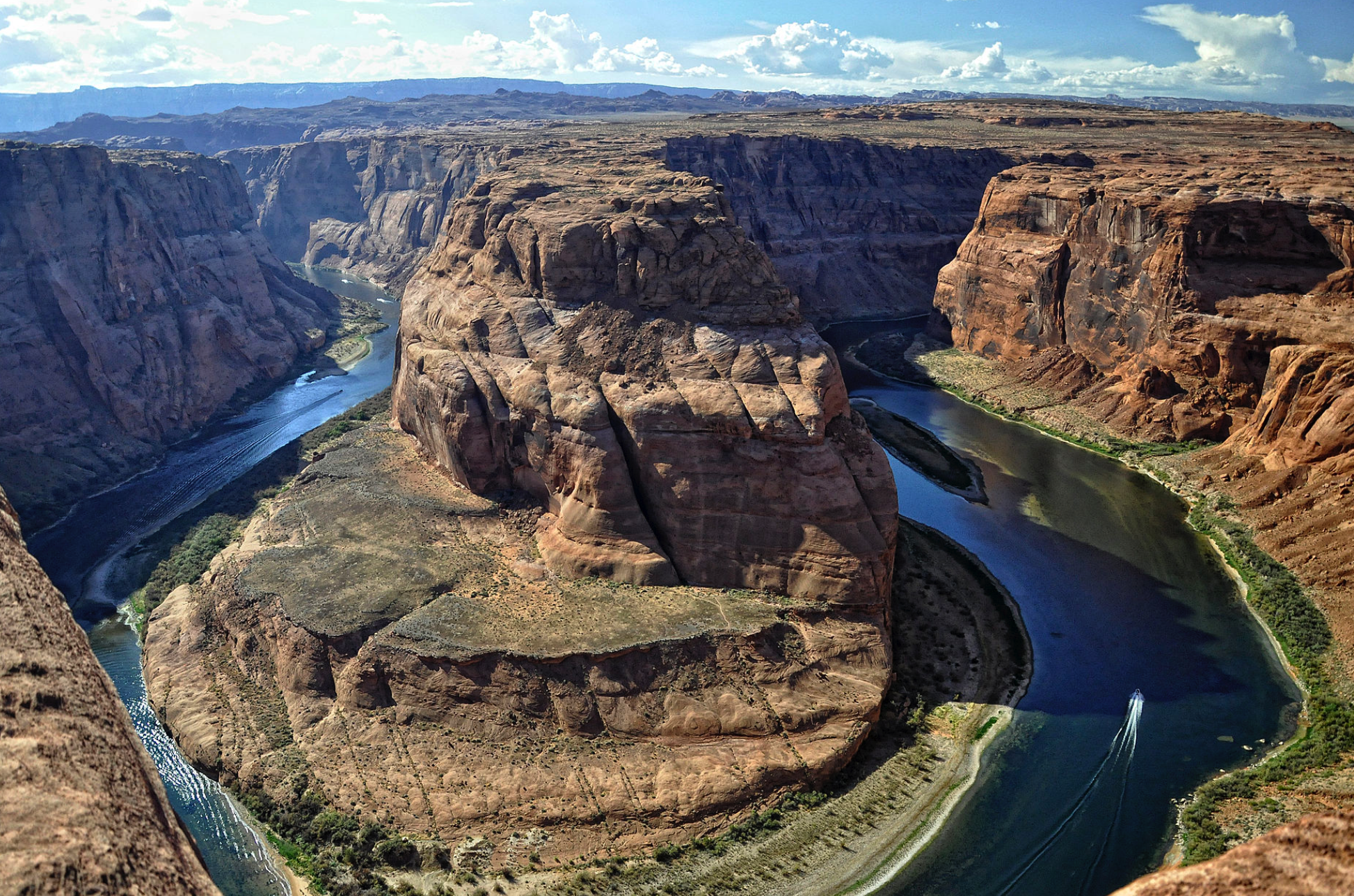Colorado River at Horseshoe Bend/Wikipedia
Mounting pressure to find solutions has Upper Basin leaders saying the savings should come from elsewhere
By Luke Runyon | KUNC
One of Colorado’s top water officials says he cannot enforce recent federal demands to start conserving more on the Colorado River.
State engineer Kevin Rein oversees the state’s water rights system. In a meeting with the Colorado River District board on Jul. 19, Rein assured members he would not be mandating conservation among their municipal, industrial and agricultural users. The district covers 15 counties in Western Colorado.
“There is nothing telling me to curtail water rights. There’s nothing telling me that I should encourage people to conserve,” Rein said.
The federal government recently called on the seven states that use the river to curtail their uses by two to four million acre-feet to keep the Colorado River’s largest reservoirs — Lakes Mead and Powell — from declining to dead pool levels and threatening the drinking water supplies for tens of millions of Southwestern residents.
Colorado officials have argued the blame for the river’s supply-demand imbalance rests with California, Arizona, and Nevada. Some doubt the federal government’s authority to demand the states use less water. The 1922 Colorado River Compact, a document that inflated available water within the entire basin, apportioned 7.5 million acre-feet of water to the river’s Upper and Lower Basins, respectively. In recent decades Lower Basin uses have exceeded that amount, while Upper Basin uses have remained below the apportionment.
“We’re way under our allocation of 7.5 million acre-feet a year,” Rein said. “So what does that mean? ‘We need to conserve.’ To me, that means that we don’t change our administration at the state engineer’s office.”








